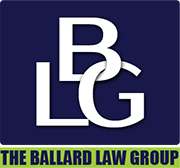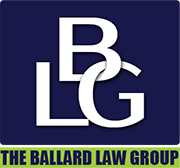For individuals with typical consumer debt such as a mortgage, car loan, medical bills and credit card debt, there are two types of bankruptcy relief available – Chapter 7, also known as a liquidation bankruptcy, and Chapter 13 also called a ‘wage-earners’ or ‘individual reorganization’ bankruptcy. While both types of bankruptcy are designed to give honest debtors a fresh start, there are substantial differences between the two.
Chapter 7
In a Chapter 7 bankruptcy, the debtor files a petition listing all of their debts, assets and sources of income. The debtor also has to file a Statement of Intent as to whether they intend to reaffirm secured debt such as the mortgage on a house or the loan on a car. Reaffirmation means that the debtor agrees to keep making payments on the debt even after the bankruptcy is discharged. Alternatively, the debtor can decide to surrender the house or car and eliminate the debt.
Once the Chapter 7 petition is filed, an automatic stay goes into effect that prohibits a creditor from contacting the debtor about any debt that they owe. At the same time a Chapter 7 Trustee is appointed to their case and a creditor’s meeting – also known as a Section 341 Meeting of Creditors is scheduled. Both the debtor and the debtor’s attorney are required to appear at the 341 Meeting where the debtor is sworn in and asked questions under oath about their bankruptcy petition. Typically this meeting lasts less than ten minutes and is the only court appearance a Chapter 7 debtor is required to make.
In most Chapter 7 cases, the Trustee files a report with the bankruptcy court that states the debtor has no ‘non-exempt’ assets, the debtor is then issued a discharge and the case is closed. After the bankruptcy case is closed, the debtor is only obligated to pay debt that they have reaffirmed plus certain types of debt that can not be discharged such as child support obligations and student loans.
Seventy-five percent of bankruptcies filed in the United States are filed under Chapter 7 of the bankruptcy code.
Chapter 13
In a Chapter 13 bankruptcy a debtor also files a bankruptcy petition that lists all of their debts, assets and sources of income, but in addition to the petition the debtor also files a proposed plan of reorganization that provides for payments to a Chapter 13 Trustee over a period of three to five years.
The primary benefit of a Chapter 13 is that it allows a debtor to stop a foreclosure against their house or repossession of their car, and any arrearage (amount of payments that are behind) can be spread out over the length of the plan. Debtors that have non-dischargeable tax debt or monthly income that is too high to qualify for Chapter 7 can also benefit from a Chapter 13 bankruptcy.
Once the debtor completes all of the payments provided for in the Chapter 13 plan – which can take three to five years depending on the plan the debtor proposed – the debtor will be current on their secured debt (mortgage, car loan, etc.) and will receive a discharge of their unsecured debts.
This is only a brief overview of the differences between Chapter 7 and Chapter 13, each case is different and you should consult with an experienced bankruptcy attorney who can advise you as to which chapter of the bankruptcy code would be best for your situation. As experienced Georgia bankruptcy attorneys, The Ballard Law Group can evaluate your individual situation and advise you as to whether Chapter 7 or Chapter 13 would be in your best interests. Call us today at (404) 800-9939 to schedule your free initial consultation at either our Atlanta or Lawrenceville office.
TERMS OF USE & DISCLAIMER: The content of this website is for informational purposes only and does not, nor is it intended to, create an attorney-client relationship between The Ballard Law Group and the viewer. Bankruptcy is a complex area of law and it is strongly recommended that you consult an attorney for advice regarding your individual situation.

